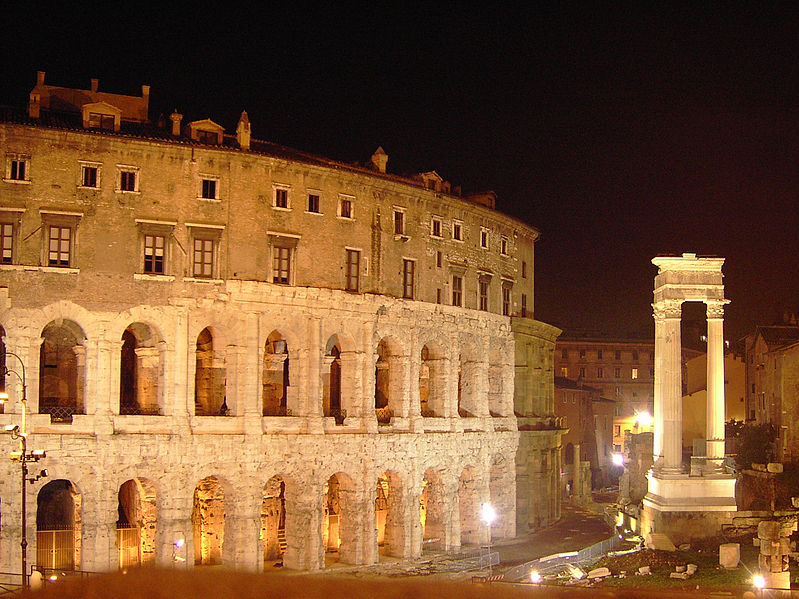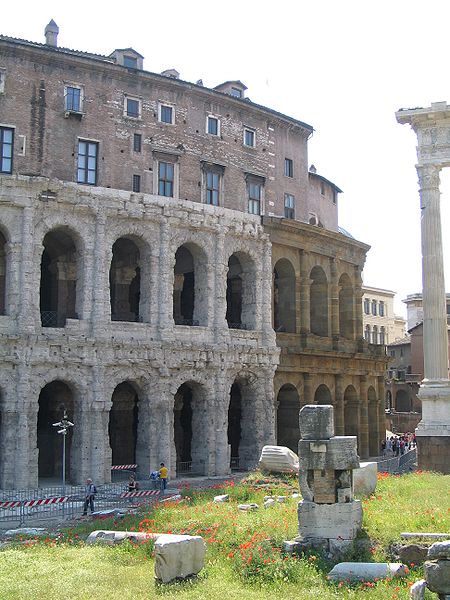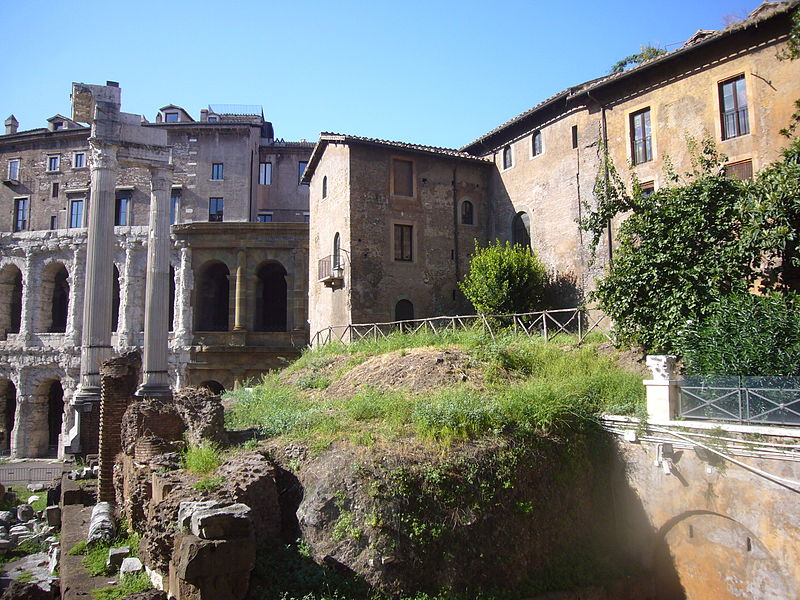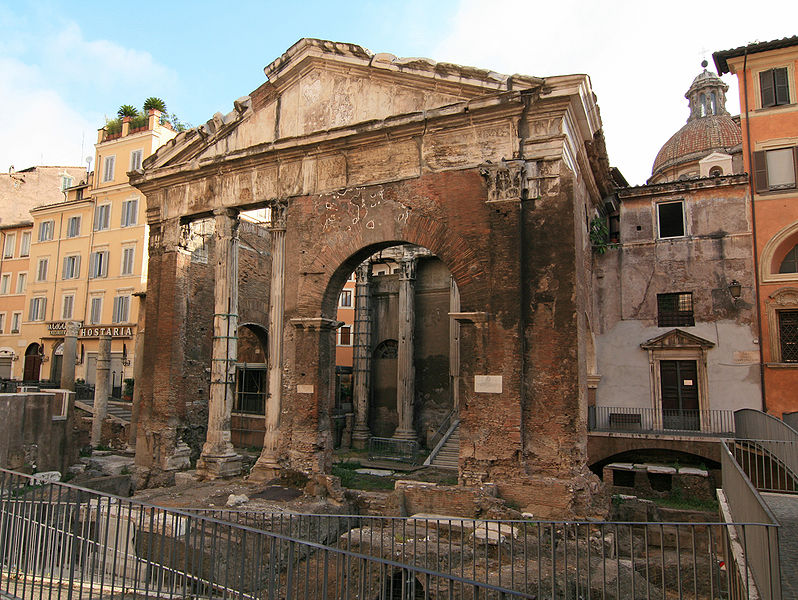One of the best sights to see in Romeis located right in the heart of the city, between the Tiber River and the Capitoline Hill: Theatre of Marcellus, an ancient Roman structure built 80 years before the Colosseum at the behest of Augustus. The theater has a semicircular structure, originally 32 meters high with two rows of arches and a third floor without openings. It was dedicated to Marcello, grandson of Augustus, who died prematurely in 11 BCE.

Unlike Greek theatres, the Roman theater is entirely man-made; indeed, the steps of a Greek theater are typically on the slope of a hill while in Roman theaters, they are built.

During the medieval era, the theatre was transformed into a fortified castle. Several families competed for the property until 1200, when it went to the Savelli who had Baldassarre Peruzzi turn it into a mansion that can still be seen above the arcades. In the 1930s, the building was expropriated by the City of Rome, and the shops and homes built within the arches were removed.

In front of the theater there are the temples of Apollo Sosiano, built in 431 BC following a plague, and that of Bellona, built in 296 BC and of which, unfortunately, almost nothing remains.Only two columns from the temple still exist.

Also near the Theatre of Marcellus is another important monument: the Portico of Octavia, erected by Augustus between the 27-23 BC, and dedicated to his sister. It is a porch enclosure that surrounded the temple of Giunone Regina and Giove Statore. Over time, there have been many restorations, the last dating back to 191 AD. Then in the Middle Ages, a large fish market and the church of Sant’Angelo in Fish were built on the ruins of the portico.
Photos by Alexander Z., Joonas Lyytinen, Lalupa, Jensens from Wikipedia Creative Commons


